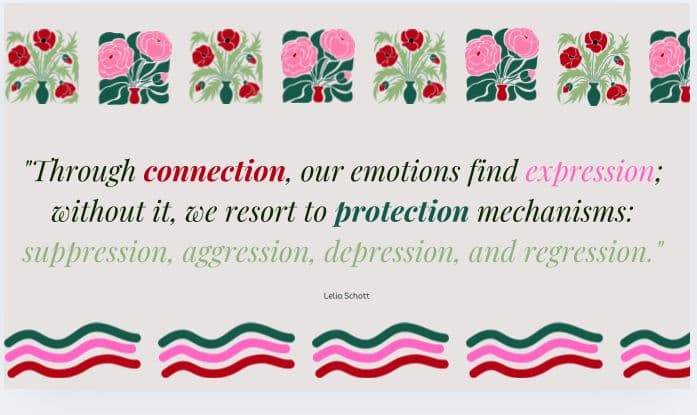
Emotions need connection
Published: 11/6/2024
Our connections with ourselves, others, and our environment profoundly influence our emotions. These connections are essential for experiencing interoception, compassion, and emotional expression.
When we feel secure in our surroundings, we are more likely to engage with our emotions authentically. On the other hand, when our sense of safety is compromised, we may unconsciously resort to protective mechanisms to cope with emotional distress.
These protective responses can manifest in various ways, including:
- **Suppression:** The conscious decision to set aside feelings.
- **Repression:** The unconscious blocking of emotions.
- **Depression:** A state characterized by profound sadness or disinterest.
- **Aggression:** The outward expression of frustration or anger.
- **Regression:** The return to younger behavioral patterns as a coping strategy.
Meaningful connections—whether with ourselves, others, nature, music, or movement—enable us to express our emotions healthily.
When we notice protective mechanisms in ourselves or others, pausing and seeking connection can be beneficial. It is during these moments that genuine understanding and support can truly flourish.
This connection can manifest through listening, slowing down, and paying attention to the sensations in our bodies. We can cultivate curiosity about what we’re feeling, needing, or believing. By embracing the role of a nurturing inner parent, we can validate our feelings, ensuring they are acknowledged and respected. It is also important to meet our physical needs, recognizing that they are essential for our well-being. Finally, taking a moment to fact-check our beliefs allows us to examine and challenge any assumptions or thoughts that may not serve us. This mindful attention helps cultivate a deeper understanding of ourselves and our experiences.
♡ L.S.